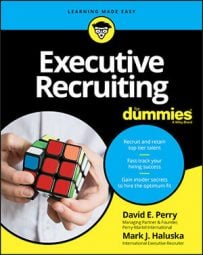In the old days, companies searched for talent by sending out requests for résumés. The candidates who submitted these résumés were then judged along two axes: price and performance. The process was so structured and simple, even the less-skilled members of your HR staff could handle it. And given the pace of business, there wasn't any rush. Of course, this yielded only those candidates who were actively looking for work, but that was the way it went.
Nowadays, the world moves at a speed more resembling a video game. It's zap or get zapped, in real time. And searching for talent isn't just about assessing price and performance. It's about gauging a candidate's knowledge and value and knowing what motivates them. Oh, and you aren't just focused on candidates who sent in their résumés, either. You're trying to draw candidates who aren't even looking to move. That's no easy feat!
That's not the only difference, though. Historically, companies have tried to draw top talent by offering financial rewards — large salaries and/or stock options. Google went the stock-option route, creating thousands of millionaires in the process. But these days, money is secondary. Yes, people want signing bonuses, options, salaries, and raises. But these are a given — the very least you have to offer. Once those pieces are in place, the issue of money becomes moot.
Some companies — tech companies come to mind — have tried to raise the ante by providing workplace perks that range from gift baskets to beer fridges to pool tables and beyond. These perks may help to foster a collegial culture — not a bad thing — but they won't be the difference maker for a serious candidate considering a serious job.
So, what does motivate people? According to Daniel H. Pink, author of Drive: The Surprising Truth about What Motivates Us (Riverhead Books), today's knowledge workers are driven by three key things:- Autonomy: Pink describes this as "the desire to direct our own lives."
- Mastery: According to Pink, this is "the urge to make progress and get better at something that matters." (The importance of mastery explains why top talent often look to work at companies that offer training.)
- Purpose: This, says Pink, is the "yearning to do what we do in the service of something larger than ourselves."
As work has become more knowledge based — more creative and conceptual — motivators have changed along with it.
All this is to say that if you want to draw top talent, you need to do more than dangle dollars. You need to be able to assess a candidate's real value and speak to his "why." And you'll need to do it in such a way that the candidate chooses you over the countless other opportunities he has no doubt been handed from all over the world. That's the new recruiting paradigm.
